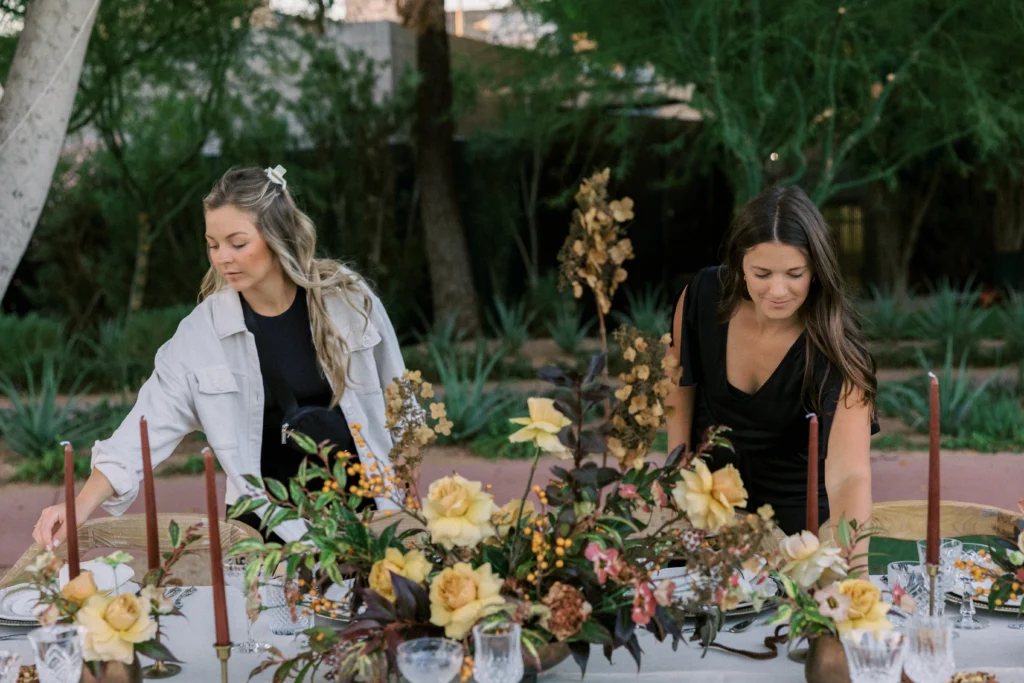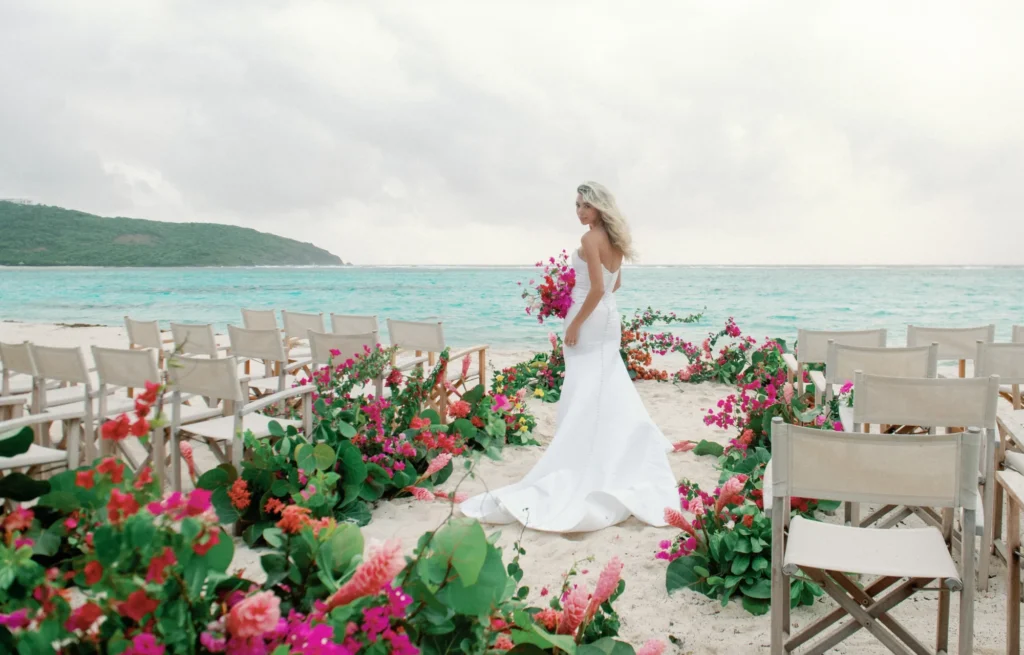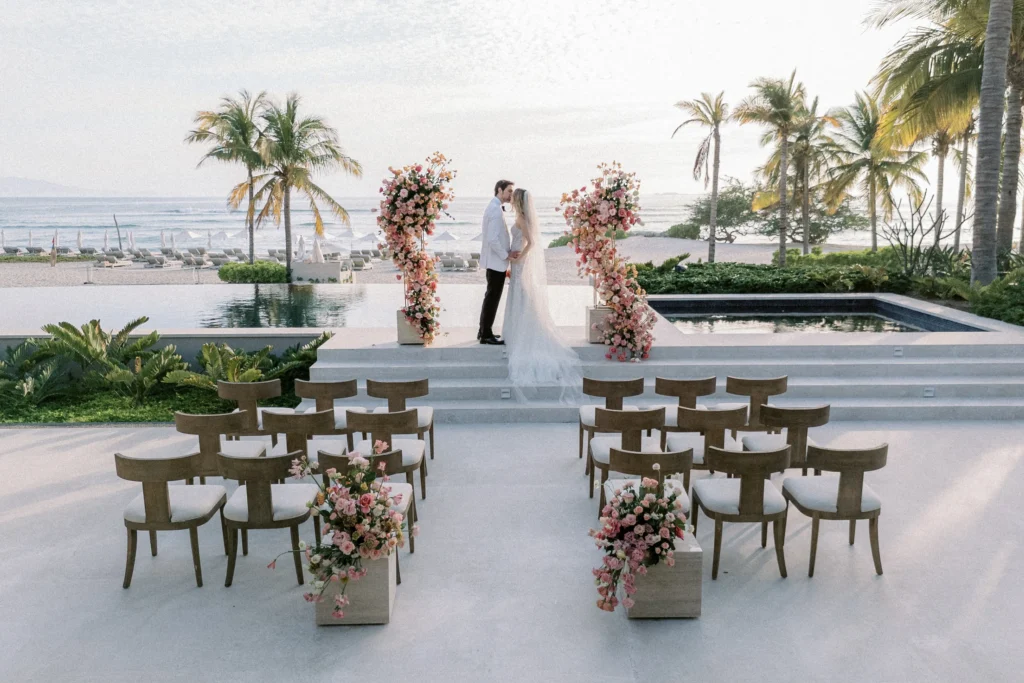Spanish culture is full of romance. In college, I was lucky to spend a semester studying abroad in Sevilla, Spain. To say the city left an impression on me would be an understatement. The architecture is a perfect blend of the modern and old world, the people are full of love and passionate energy, and the smell of orange blossoms wafts through the streets.
A country steeped in history like Spain has beautiful wedding customs & traditions. Here are some favorites.
Engagement Ring
When women in Spain become engaged, they wear their engagement ring on the ring finger of their left hand. After the wedding, their wedding ring (typically a solid gold band) is worn on the ring finger of the right hand. In other words, they don’t stack both rings on the ring finger of the lefthand as we typically do in the United States.
No Wedding Party

You typically won’t find bridesmaids and groomsmen at a wedding in Spain. Instead, the bride and groom are attended to by Padrinos, or godparents, whose job it is to keep the bride and groom from seeing each other before the wedding. The bride’s Padrino is traditionally her father, and the groom’s Padrino is his mother. At the reception, both sets of parents sit with the bride and groom at a head table for 6.
Orange Blossoms

My greatest memory from living in Seville is the smell of orange trees around every corner. Since orange trees are so prevalent in Spain, it’s no surprise that the orange blossom is the traditional Spanish wedding flower. For Spaniards, orange blossoms represent joy and happiness for the newly married couple. They’re also symbolic of fertility.
I love orange blossoms so much that I named my company after them! Orange Blossom Special Events is my way of always remembering the beauty and smell of fresh orange blossoms and the blessings they represent.
Gold Coins

In Spanish Catholic weddings, similar to Catholic weddings around the world, the bride and groom share 13 coins known as arras or unity coins. The meaning of the coins varies a bit from culture to culture, but, in general, they symbolize good fortune for the marriage ahead. In the Catholic religion, the number 13 is representative of Jesus and his twelve apostles.
Bride Wears Black
Although many brides today opt to wear white, the Spanish wedding custom is that brides wear a black, silk dress. For Catholic brides in Spain, the black signifies the bride’s commitment and devotion to her groom “until death do us part.” Today, a bride might choose to wear black as a nod to the tradition or to break out of the white wedding dress mold.
Lace Mantilla Veil

Similar to the black dress, Spanish brides traditionally wear a black wedding veil. The veil is edged with intricate lace and is called a mantilla. Starting in the 17th century, it was common for women in Spain to wear a veil, or mantilla, every day. As that practice fell out of favor, wearing a mantilla was reserved exclusively for special occasions, such as weddings.
Paella and Seafood

The rice dish paella, and seafood in general, are a big part of Spanish culture and is commonly served at large gatherings like weddings. Paella originated in Spain and is cooked on an open flame in a large, flat frying pan. The contents of paella vary but primarily consist of mixed seafood, rice, and vegetables. It’s a great dish for sharing with a big group!
Sequidillas Manchegas
In Spain, there’s a traditional Castillian wedding folk dance called “sequidillas manchegas.” During this dance, wedding guests pay the bride to dance and, at some weddings, may bid on her garter. The money earned by the couple during the dance is used to set up their new home together.
Cutting up the Groom’s Tie
During some Spanish weddings today, the groom’s friends will take scissors and chop up his tie, then sell the pieces to guests to raise more money for the couple.
As you can see, Spanish wedding traditions are rooted in the history of their culture. If you’re invited to a wedding in Spain, go! You’re guaranteed to have a good time.
More International Wedding Customs & Traditions We Love
Sentimental Wedding Traditions From Around the World
Are you ready to learn more? Sentimental wedding traditions and customs were written for lovers of culture and romance.

Contributed by Brooke Avishay, the owner and founder of Orange Blossom Special Events, a premier wedding planning production and design company located in Los Angeles.









